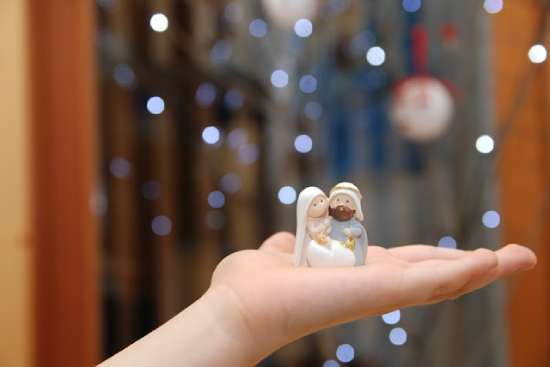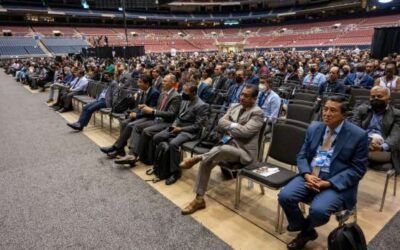Wondering whether your Adventist classmate or coworker keeps the same holidays you do? Perhaps you want to include them in some festivities, but you also want to respect their beliefs. So, you’re unsure of how to navigate the holiday question. Will they accept your invitation to the office Christmas party?
Well, here’s the inside scoop!
Although some religious groups and Christian denominations don’t celebrate holidays, Seventh-day Adventists typically do, including major holidays like Christmas, Easter, and Thanksgiving. They spend these days in ways that reflect biblical principles and family values.
Let’s look at what holidays Adventists celebrate and how they celebrate them. We’ll cover:
- Christmas
- Easter
- Birthdays
- Thanksgiving
- Halloween
- New Year’s Day
- Patriotic holidays
- Commercial/Hallmark holidays
Let’s get started!
What holidays do Adventists celebrate?

Photo by Cristian Escobar on Unsplash
Adventists, particularly those in North America, keep major national and patriotic holidays. However, some might choose to avoid certain ones because they conflict with their beliefs, priorities, or opinions. They might not have an issue with the holiday as a whole but may only observe certain aspects of it.
The Seventh-day Adventist Church doesn’t have an official statement about celebrating holidays. The Bible is also silent on this point, given that most modern holidays didn’t exist back then.
In other words, it’s not a sin to keep or disregard holidays. Instead, we follow our consciences and the principles found in the Bible to make these decisions. We believe that all are free to decide for themselves what holidays to keep.
And what about Hebrew religious festivals and feasts like Passover?
We value the lessons of these holy feasts, but see the keeping of them as specific to Mosaic law—meaning they were designed for the Israelite nation in the Old Testament (Exodus 12:43–49) and were connected with the system of animal sacrifices (Numbers 9:6–7). These sacrifices ultimately pointed forward to the sacrifice of Jesus Christ on the Cross. Now that Jesus has died and resurrected to fulfill these symbols, Christians don’t need to sacrifice animals or keep the feasts.
That doesn’t stop us from enjoying modern holidays and cultural traditions, though.
So what is it that guides Adventists’ approach to holidays?
Even though the Bible doesn’t mention modern holidays, it gives us valuable principles to apply. It outlines behaviors and beliefs we should avoid (greed, spiritualism, consumerism etc.), and explains what attitudes we should strive toward (generosity, joy, thankfulness, etc.).
In the end, keeping holidays comes down to how they impact:
- Our beliefs
- Our behavior
- Our treatment of others
This is important because these areas affect our relationship with Christ and our influence on others. Our greatest desire is that every holiday we keep would draw us closer to Him and show His love.
Let’s dive into the specifics of each holiday and how Adventists apply these principles in celebrating them.
Christmas

Photo by Leon Oblak on Unsplash
Like most families, the majority of Adventists celebrate Christmas. Although Jesus Christ wasn’t born on December 25th, we take this holiday to reflect on His birth and what it means for us.1 It’s a time to be thankful and joyful and spend time with family—all of which uplift Christian principles.
But unlike most, we don’t make it a special day to go to church (unless Christmas happens to fall on a Saturday, in which case we’d be attending church service anyway).
Around Christmastime, pastors usually preach a message about the birth of Jesus. And church members often look for ways to serve the community. They might do this through food or toy drives or other types of community service.
Some Adventists—like Christians in other denominations—don’t keep mainstream Christmas traditions because they’re concerned about their origins. Or they may also be concerned about falling into the greed and selfishness this holiday can inadvertently stir up because of its emphasis on consumerism.
Even so, few can deny that Christmas is a wonderful time to share the Gospel!
For example, churches might put on a special Christmas program or concert during the month of December. This event gives church members an opportunity to invite their friends, family, and neighbors to church.
Learn more about how Adventists celebrate Christmas.
Easter
Easter is another holiday most Adventists celebrate because it commemorates Jesus’ resurrection—a central theme in Adventism and Christianity. Though we celebrate the resurrection throughout the year, Easter is a great time to emphasize values such as being with family, remembering the promise of eternal life through Jesus’ death and resurrection, and telling others about this hope of the Gospel.
Around Easter time, the pastor might preach a sermon about the resurrection. Churches may also organize outreach events like special worship services, music programs, or Easter plays.
As with Christmas, some Adventists—along with other Christians—may be concerned about the origins of Easter traditions and may avoid it for that reason. Others feel that people put more emphasis on the commercial aspects of the holiday than the resurrection of Jesus.
But each family celebrates differently and can choose their focus. They might eat dinner together, hold Easter egg hunts, or watch movies about Jesus.
Get more details on how Adventists view Easter.
Birthdays
Whether holding a party or simply opening presents and eating cake with family, Adventists see birthdays as a way to thank God for another year of life and look back at how He’s helped us grow through the past year. We also take them as an opportunity to show that we care about our members. We might list members’ birthdays in our church bulletins or sing “Happy Birthday” to them during a fellowship meal after church.
Some make the personal decision not to celebrate birthdays—perhaps because they don’t want the limelight on themselves or their children.
But the vast majority take birthdays for what they are: opportunities to celebrate life.
Read our article about Adventists and birthday celebrations.
Thanksgiving
Thanksgiving is widely accepted by North American Adventists, and, around this holiday, pastors often preach about the Christian principles of generosity, thankfulness, and contentment. Some churches have a food drive to ensure that everyone in the community can enjoy a happy Thanksgiving.
The main difference between a typical Thanksgiving celebration and an Adventist one is that many Adventists forego the turkey for vegetarian options.
During their tasty meal of choice, Adventist families might go around the table so that each family member can reflect on what they’re grateful for.
Halloween
 Many Adventists avoid Halloween because of its ancient connections to spiritualism and communication with the dead. Those who do will hold alternative events, such as fall festivals, providing games, food, and fun for families. Children may dress up as their favorite Bible or movie characters, animals, etc., rather than something scary or spiritualistic.
Many Adventists avoid Halloween because of its ancient connections to spiritualism and communication with the dead. Those who do will hold alternative events, such as fall festivals, providing games, food, and fun for families. Children may dress up as their favorite Bible or movie characters, animals, etc., rather than something scary or spiritualistic.
One tradition Halloween stems from is a Celtic celebration called Samhain. The Celts would wear frightening masks to ward off evil spirits—hence, the tradition of dressing up.2 Another tradition comes from Hallow’s Eve, which occurred the night before All Saints Day, a holiday celebrating saints.
These traditions present some biblical concerns for Adventists.
For one, the Bible warns against spiritualism (Leviticus 20:6). Practices such as dressing up as dead figures, frightening people, and glorifying the occult don’t harmonize well with this principle.
Second, Halloween encourages the belief that the dead are conscious, though the Bible teaches the dead are unconscious and unable to interact with the living (Ecclesiastes 9:5).
Even so, some Adventists have found ways to safely enjoy Halloween and divert the focus to creativity, the autumn weather, tasty treats, and time with friends and family. Some may also use this day to reach out and share about Jesus—for example, passing out treats and little booklets of Bible stories for children.
New Year’s Day
While it’s easy to associate New Year’s Eve with wild parties, Adventists have other enjoyable ways of ringing in the new year. Usually, the whole point of parties is to get together with the people you care about, so that’s a common thing we do. We might play games, make fun food, and stay up late to watch the ball drop in New York City. And don’t forget the sparkling grape juice (a tasty non-alcoholic drink)!
We might also create New Year’s resolutions.
Resolutions can be especially helpful because they encourage Christians to seek personal and spiritual improvement. These resolutions can vary from volunteering to going vegetarian. Although Christians are always trying to find ways to be more Christlike, this day can be a reminder to set positive goals and encourage one another.
Patriotic holidays

Photo by Stephanie McCabe on Unsplash
Adventists often participate in patriotic holidays, taking the time to be with family and reflect on the beauty, joy, and freedoms they find in their respective countries.
In the United States, these holidays would include the Fourth of July and Memorial Day. During them, it wouldn’t be unusual to find Adventists watching fireworks or having a Memorial Day barbeque. The major difference is that the barbeque will probably include beef hot dogs or vegetarian options (such as veggie links, veggie dogs, etc.) as opposed to your standard pork-based hot dogs.
Adventists in other countries also take part in their countries’ respective independence days and patriotic holidays. They might eat traditional foods and partake in parades or picnics.
Commercial/Hallmark holidays
Celebrating commercial holidays, sometimes known as Hallmark holidays, is again a personal choice for Adventists. Throughout the world, perhaps the ones that Adventists celebrate most are Mother’s Day and Father’s Day, taking the time to show how we value these family members in our lives.
When it comes to other holidays like Valentine’s Day and St. Patrick’s Day (in North America), some choose to celebrate them, and others do not. It really comes down to personal preference.
Biblical principles guide Adventists in holiday-keeping
Adventist church members have the freedom to follow their consciences in choosing which holidays to keep and which ones not to keep.
Because God gives us this freedom of choice, we give that same freedom to others instead of guilting them about what holidays to celebrate or avoid.
It’s a personal decision. And by asking the Holy Spirit for guidance and seeking to honor God through our application of the Bible’s principles (1 Corinthians 10:31), we can be sure we’ll make the right decision.
Even though there are no holidays specific to Adventism, there is one “holiday” that God has created for every person to enjoy.
The awesome part?
It takes place every week.
To learn about this special weekly Sabbath God created all for us,
Related Articles
More Answers
Do Seventh-Day Adventists Have “Rules” For Clothing?
Many religions have guidelines on dress, but what about the Adventist Church? Discover how Adventists choose to dress based on biblical principles.
11 Reasons People Become Seventh-day Adventists
Curious why many people become Adventists? Here are elements of Adventist beliefs, values, and mission often reflected in people’s decisions to join.
What’s the Seventh-day Adventist General Conference Session?
At the General Conference Session, Adventist delegates from around the world gather to assess the state of the organization, pray, and discuss current issues. Here’s how it works.
How Adventists View the End of the World
The end of the world is no fun to think about. But here’s how we can actually find hope and comfort in what’s to come.
What Is an Adventist Medical Missionary?
A medical missionary in the Adventist Church is someone who cares for the medical needs of people as a way of showing the love of Jesus. They may travel to another country, or even just serve in their hometown.
Is the Seventh-day Adventist Church Protestant?
Learn how the beliefs of the Seventh-day Adventist Church align with the “5 solas” of Protestantism.
Are Seventh-day Adventists Evangelicals?
According to its origins and definition, evangelicalism is about following Jesus and the Bible and sharing the Gospel through the way we live our lives. Adventists wholeheartedly harmonize with these principles.
Could Anything Keep Me from Becoming an Adventist?
We are each saved through Christ. But when it comes to church membership, are there certain beliefs or expectations to become an Adventist?
Do Seventh-day Adventists Have “Rules”?
We uphold principles we believe will help us maintain a closer relationship with Jesus and His Word. Learn how these principles guide Adventist lifestyles.
Do Seventh-day Adventists Have “Rules” For Marriage?
Around the world, many cultures and religions have various marriage traditions, expectations, or even rules when it comes to choosing a partner, planning the wedding, extended family logistics, or a number of other things.
Can a Seventh-day Adventist Marry a Non-Adventist?
Yes. Seventh-day Adventists are not under any official rules that dictate who they can or cannot marry. This is a personal, life-altering decision between the couple and God.
What Adventists Believe About Alcohol and Tobacco Use
The Seventh-day Adventist Church has historically discouraged the use of alcohol and tobacco. Even before the church started in 1863, its leaders were realizing the negative effects of these substances.
Jewelry—Why Do Many Seventh-day Adventists Choose Not to Wear It?
If you walk into a Seventh-day Adventist church service, you might notice that many people aren’t wearing earrings, bracelets, necklaces, or sometimes even wedding rings.
International Pathfinder Camporee
Youth aged 10-15 in the Adventist Church’s global Pathfinder program look forward to the International Camporee every 5 years. This event brings together Pathfinders from around the world for exciting activities.
How Adventists interpret Bible prophecy
Bible prophecy conjures up a variety of emotions in people. For some, it feels exciting or mysterious.
Moviegoers’ Guide to The Hopeful: The Facts Behind the Film
Learn where and when you can watch The Hopeful and how to get tickets. Already seen it? We’ll uncover the real story that inspired this film.
How Are Seventh-day Adventists Different from Other Protestants?
As a Protestant Christian denomination, the Seventh-day Adventist Church regards the Bible as the ultimate guide and looks to Jesus Christ as the only way to salvation. We do have some differences of belief or interpretation when it comes to topics like Bible prophecy, end-time events, the Sabbath, and a person’s state after death.
How Adventists Handle Death and Funerals
Most Seventh-day Adventist funeral services are similar to those of other Protestant denominations, such as Methodists, Baptists, or Presbyterians, but you might find a few differences or unique nuances.
Adventist Culture
Many Seventh-day Adventists adhere to specific lifestyle principles that can make them stand out from those in other Christian denominations. Whether it’s going to church services on Saturday or eating the popular Adventist entrée of “haystacks.”
Do Adventists Observe Easter-Related Holidays?
Jesus Christ’s resurrection, celebrated on many Easter-related holidays, is central to the beliefs of the Seventh-day Adventist Church. And that means we seek every opportunity to remember it.
An Overview of Seventh-day Adventist Higher Education
The Seventh-day Adventist Church has about 118 tertiary schools around the world. Though many of them are within North America, you’ll also find Adventist universities in countries across the world—places like Croatia, Austria, Brazil, Madagascar, and the Philippines.
The Ten Commandments from a Seventh-day Adventist Perspective
Ever eaten a salad and gotten a big piece of green stuck in your teeth? And you didn’t realize it was there until you looked in the mirror? (Because no one ever told you!)
The Benefits of A Seventh-day Adventist Academy
Adventist academies are high schools (grades 9-12) that are owned and operated by the Seventh-day Adventist Church.
Are Seventh-day Adventists Christians?
Yes, the Seventh-day Adventist Church is a Protestant Christian denomination formed in 1863. Just like other Christians, we believe that Jesus Christ is our Savior and seek to follow the principles of the Word of God.
Adventist Movies: Where Faith and Film Meet
The Adventist Church uses film to share our faith and uplift positive values. Learn more about specific Adventist-produced films and where to find them.
Do Adventists Celebrate Christmas?
In general, most Seventh-day Adventists do celebrate Christmas.
Since our denomination doesn’t have specific guidelines about holidays, it’s up to each member to decide whether to celebrate it based on their personal convictions and study of the Bible.
What Does the Bible Say About Modesty
Seventh-day Adventists and Christians in general try to ensure their outward presentation and lifestyle glorify God. This often involves daily habits like the ways we hold conversations, the ways we dress and accessorize, and the ways we regard other people when we’re out and about.
How Do Adventists Make Movie and Music Choices?
How do Adventists decide what music to listen to and which movies to watch? Learn how Bible principles can help us make better entertainment choices.
Does the Seventh-day Adventist Church Believe in Paying Tithe?
Seventh-day Adventists believe in paying tithe and offerings based on the biblical command and our commitment to being wise stewards of God’s resources. These donations help fund the mission of the Adventist Church by supporting pastors, missionaries, church expenses, and evangelistic projects, among other things.
Didn’t find your answer? Ask us!
We understand your concern of having questions but not knowing who to ask—we’ve felt it ourselves. When you’re ready to learn more about Adventists, send us a question! We know a thing or two about Adventists.































